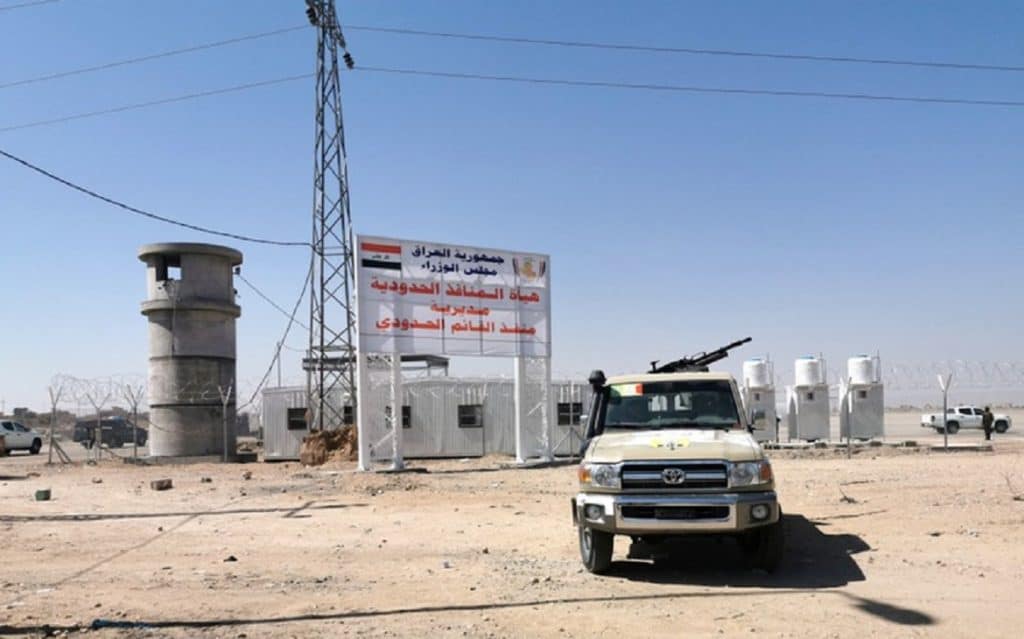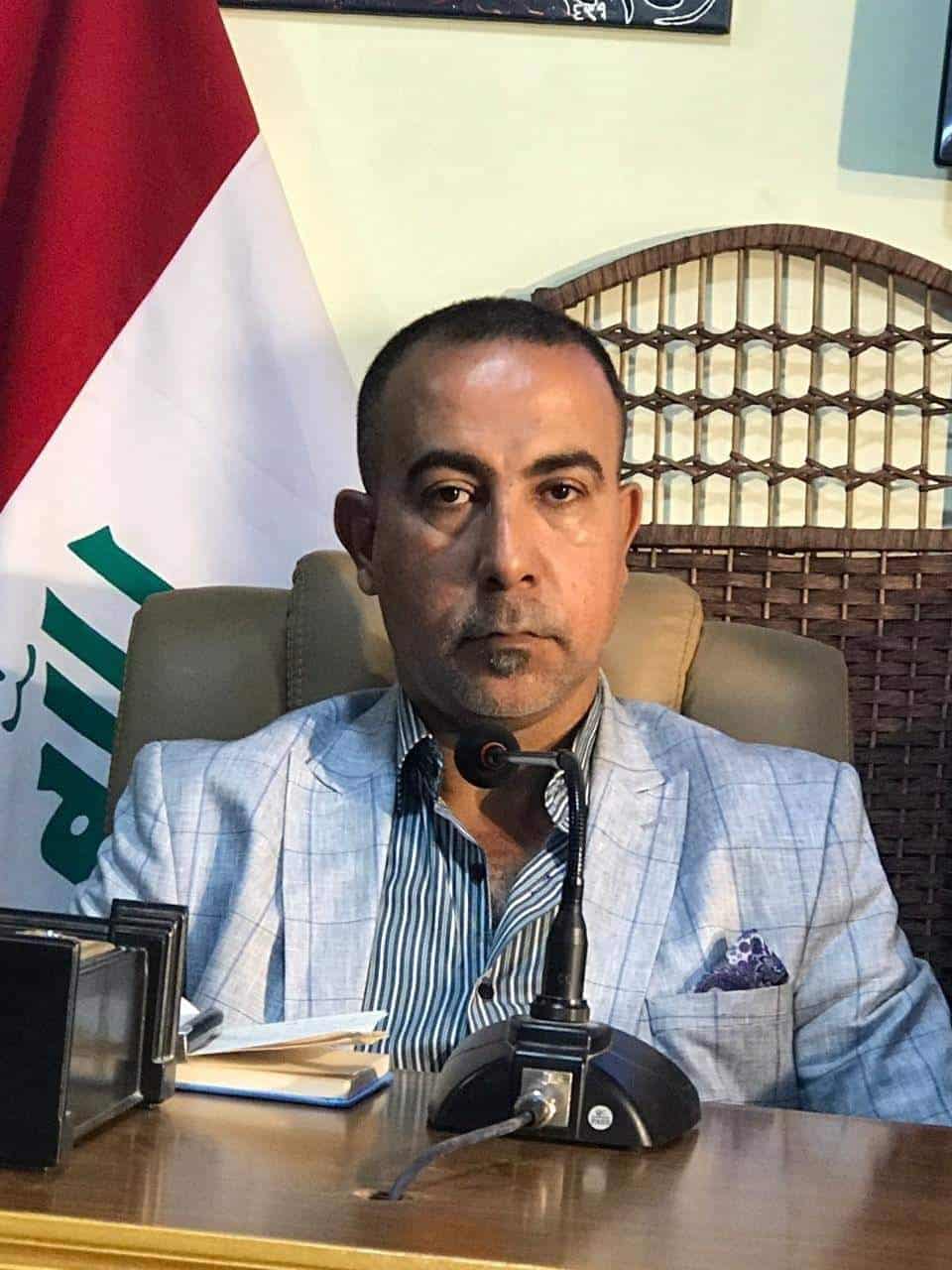Denis Korkodinov – Interview with Ali Fadlallah
Despite excessive American pressure, Tehran and Baghdad were able to overcome existing differences and create a stable defensive alliance, to which Syria also joined.
The ayatollah regime took a strong position in Iraq almost immediately after the overthrow of Saddam Hussein. With US support, Tehran has made every effort to counteract the Iraqi leader’s “Sunni Renaissance” policy. However, as a result of a military invasion of the United States, the former followers of Saddam Hussein formed the Islamic State asset, which spread its influence, including to Syria, So Iran expanded its cooperation with the new Iraqi leadership and Damascus. The most striking manifestation of such cooperation was the opening of a border point between the Syrian city of Al-Bukamal and the Iraqi city of Al-Qaim, previously controlled by ISIS. The opening of this border checkpoint represents a unique opportunity for Iran to strengthen its influence in the region and to establish not only an anti-American, but also an anti-Turkish coalition of countries in the Middle East.
In this regard, specifically for World Geostrategic Insights, Iraqi political expert Ali Fadlallah answered our questions.
1. On September 30, 2019, Iraq opened the Al-Qaim border checkpoint in Anbar province, connecting it with the Syrian city of Al-Bukamal. This was clear evidence that relations between Baghdad and Damascus were almost completely restored. In turn, the opening of the Syrian-Iraqi border significantly strengthens Iran’s position in the region, creating the possibility for Iranian-supported armed groups to freely penetrate eastern Syria to solve military-political problems and exert pressure not only on the White House administration, but also on Turkey. The fact is that Anbar province, where the Al-Qaim border checkpoint is located, is in the interests of the Kurdish armed group “YPG”. And now, when Ankara announced a new military operation in eastern Syria, the Kurds can receive significant support from Iran, which creates serious problems for Turkey. Is it really? Is it possible to argue that the opening of the Syrian-Iraqi border was a consequence of the military preparations of Turkey? In the event that Ankara decides to launch an offensive in northeastern Syria, how likely is it that this could provoke a Turkish conflict with Iraq and Iran? It is worth noting that the opening of a border point on the border with Syria indicates that crowds of refugees can freely enter Syria from the territory of Iraq, but they can also enter Iraq from the territory of eastern Syria. Together with refugees, terrorists can infiltrate Iraq, which could pose a threat to national security for official Baghdad. What measures are the Iraqi government and the Iraqi army taking to prevent the use of the al-Qaim border checkpoint for terrorist purposes?
Ali Fadlallah – The opening of the Al-Qaim border checkpoint is vital for the strategic development of not only Iraq and Syria, but the entire region as a whole. So, the Iraqi army’s counterterrorism goal is to free the land and spread its influence on it, while the Syrian army’s goal is different: the SAA frees up territories and leaves, and the terrorist cells return and threaten the local population again. Therefore, al-Qa’im is necessary in order to balance our capabilities and jointly eliminate various regional challenges and threats. In the end, this will prompt the Bashar al-Assad regime and the Iraqi armed forces to control the eastern border of Syria, strengthening its military presence there in order to counter terrorists.
Of course, Iran will benefit from this border point, which could serve as a logistics corridor for armed groups loyal to Iran and located on Syrian territory.
Regarding the possibility of a clash between Iraq, Turkey and Iran over this transition, this is unlikely to happen, despite the fact that Ankara is ready to move in this direction. First of all, Russia will not allow fighting with Iran or Iraq. In addition, the Turks are not ready to engage in new conflicts and aggravate their relations with their neighbors, knowing that it will be too expensive for Ankara.
Of course, there is a risk that terrorists could take advantage of Al Qa’im. But in order to counteract them, Syria and Iraq conduct joint patrols of the area, inspection of all persons crossing the border. And by joint efforts we will not allow friendship between our countries to be marred by anyone.
2. Attacks on Saudi oil facilities have created a cause for concern that Iraq could turn into a battlefield between Shiite militias and the United States. These concerns were confirmed by Kassem Suleimani’s visit to Baghdad almost immediately after the attack on the Saudi Aramco facilities. So now Washington is extremely interested in forcing the Iraqi leadership to control the armed forces and reduce Tehran’s influence in Iraq. To do this, the United States can increase its pressure on Baghdad and, most likely, increase its military contingent in the region. The reason for such actions may be the recent attacks by pro-Iranian forces in the so-called “Green Zone” in western Baghdad, where the US embassy is located. In this regard, will Washington be able, through the language of threats and blackmail, to force the Iraqi leadership to limit the influence of Shiite militias loyal to Iran in the country? In the absence of a positive result for the United States, would this not be the reason for the United States to once again attempt an military invasion of Iraq, as it was in 2003?
Ali Fadlallah – The recent attack on Saudi Aramco targets is one of the deadliest attacks on Saudi Arabia in the last five months, which is largely due to changes in the military strategy of the Yemenite Hussites: the transition from direct military confrontation to high-quality attacks on enemy territory.
The loss of production of five million barrels per day has negative consequences for the economy of Riyadh.
However, the main danger is that the defense systems of the Saudis, like, among other things, all the countries of the Persian Gulf and the Middle East, have demonstrated their complete failure.
Some American, Israeli, and even Arab media claimed that the attack was carried out by Iraqi armed groups loyal to Iran. And if we admit that the Iraqi government cannot prevent these groups, then this is contrary to reality.
The fact is that Iran is working to distribute loyalist factions loyal to it in the region so as to protect Iraqi militias from any military provocations, at least at this stage. This is due to the desire to avoid any economic sanctions against official Baghdad, which is considered by the Ayatollah regime as a backup option of pressure on the United States and the international community as a whole.
Thanks to Iraq, the Iranian economy still maintains the pace of a relative positive development. Therefore, Iran has no reason to endanger Iraq and create problems for Iraqi militias. On the contrary, Tehran is interested in the Iraqi militia being protected as much as possible and not attracting close attention from the international community. In this regard, it is unlikely that Iraq or the armed groups loyal to Iran located on its territory could take part in the attack on Saudi targets.The Yemenite Hussites, in my opinion, did not attack, but they very skillfully and quickly used this situation to achieve several goals.
First, the defeat of oil facilities in Saudi Arabia increased the international community’s fears of Iran and the Ansar Allah movement in Yemen, prompting many Gulf countries and the Middle East to increase their defense spending and seek new allies. Secondly, it was a demonstration of the strength of Iran and the Yemenite Hussites to those regional players who still think that the ayatollah regime and the Ansar Allah movement are not capable of a harsh reaction.
Meanwhile, it is believed that Israel attacked. This is indirectly evidenced by the accuracy of hitting targets in Saudi Arabia. Israel could use US control over the airspace of Iraq, Kuwait and Saudi Arabia to launch an attack. The goal of this is to mix maps in the region and create a crisis in relations between Iraq and Saudi Arabia, as well as strengthen the anti-Iran campaign.
At the same time, neither Israel nor the United States is likely to be able to force Iraq to exert pressure on Shiite groups, since any pressure on them will cause a series of armed clashes. Baghdad, realizing that its resources are limited, and it has a relatively weak army, will not quarrel with militias. Washington, too, will not be able to limit the influence of Hashd al-Shaabi. Therefore, the only loyal US ally in Iraq can only be the American army. This means that the White House administration may send troops to Iraq. But such a development of events will probably not lead to an escalation of the conflict, as it was in 2003.
3. On September 28, 2019, the leadership of official Baghdad decided to dismiss the Commander of the Iraqi Counter-Terrorism Forces, Lieutenant General Abdul Wahab Al-Saadi, known for the fact that it was thanks to his military talent that the cities of Mosul, Fallujah, Ramadi were released from the “Islamic State” and Tikrit. The local population considers Abdul Wahab al-Saadi a national hero, and in honor of him a statue was even installed in Mosul. Meanwhile, experts indicate his loyalty to US policy and the lack of intentions to cooperate with Iran as the reason for his resignation. Thus, Tehran could influence the resignation of Abdul Wahab al-Saadi. Does this mean that with his resignation, Iraq could face the threat of an internal political conflict, as a result of which Abdul Wahab Al-Saadi could become a leader in protests aimed at overthrowing Iraqi President Barham Saleh and Prime Minister Adel Abdul-Mahdi? Will the US take advantage of the situation with the resignation of Abdul Wahab al-Saadi as an excuse to put pressure on official Baghdad and impose international sanctions against it?
Ali Fadlallah – The removal of Lieutenant General Abdul-Wahab al-Saadi was a shock to the street in Iraq, because this military commander is very popular due to his success in leading the release of many areas from terrorists, especially from the Islamic State. Moreover, his resignation is exclusively an internal affair of Iraq and is in the competence of the president and prime minister of the country.
Many experts do not rule out the possibility of a military coup, the attempt of which may subsequently be led by Abdul-Wahab al-Saadi, given that he has experience for this. And, most likely, the USA can support him. But while official Baghdad is somehow loyal to the policies of the White House, the chances of a military coup are extremely small. Moreover, the Iraqi government is now very interested in ensuring that Abdul-Wahab al-Saadi, after his resignation, does not appear anywhere at all, so as not to become an opposition leader.
To do this, he is likely to be imprisoned or killed. This will guarantee that the Iraqi opposition and the United States, deprived of a leader in Baghdad, will not begin an attempt to overthrow the legitimate authority in Iraq.
Image Source: Reuters (Iraqi-Syrian borders at Al Qaim Al Abu Kamal)








